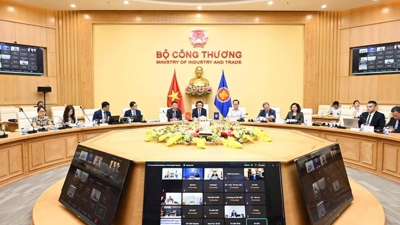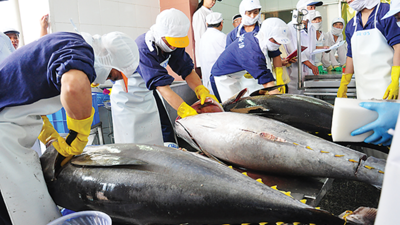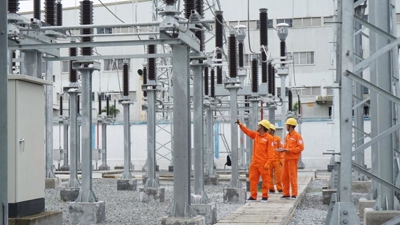Australia’s Corio Generation looking to operate offshore wind power project
Leading global offshore wind power developer proposes pilot project in Vietnam.
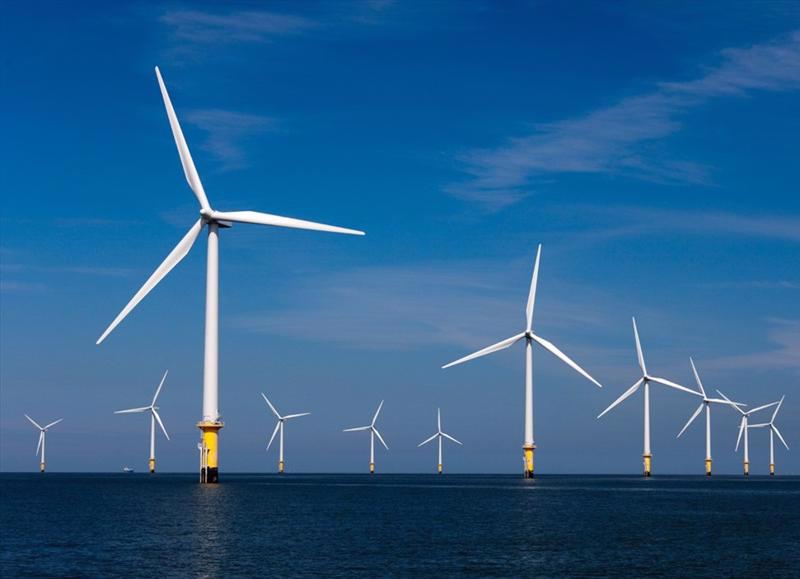
During a meeting with Prime Minister Pham Minh Chinh on March 8, Mr. Yi-Hua Lu, the Asia-Pacific Regional Director of the Corio Generation, which is part of the Macquarie Group, said the company plans to expand its investment in Vietnam in the field of renewable energy.
He elaborated upon the company’s strategies for expanding its investment position in Vietnam, demonstrating a keen interest in exploring potential ventures in future infrastructure initiatives. He also outlined various challenges and hurdles encountered during project implementation, and proposed securing the authorization to initiate a pilot offshore wind power project in the country.
For his part, Prime Minister Pham Minh Chinh extended a warm welcome to his guest and expressed high regard for the productive investment and business endeavors of the Macquarie Group overall and specifically Corio Generation during recent times.
He recommended that the company formulate a pilot project and promptly submit this to relevant authorities. Deputy Prime Minister Tran Hong Ha will directly oversee the resolution of any issues within his jurisdiction, while any matters exceeding his authority will be reported to the Prime Minister’s Office.
Furthermore, Prime Minister Chinh suggested that Corio Generation collaborate with relevant ministries, sectors, and partners in Vietnam to explore and execute specific projects in the near future, ensuring tangible benefits for all involved. It is essential that the pricing of wind power remains suitable and mutually advantageous.
The Prime Minister also encouraged Corio Generation to diversify its partnerships in Vietnam, including engagements with Electricity of Vietnam (EVN) or the Vietnam Oil and Gas Group (PetroVietnam), both of which are seasoned entities in the wind power sector. He underscored Vietnam’s aspirations to advance its wind power industry and advised the company to prioritize technology transfer and support beyond mere investment.
The Vietnamese Government and ministries have affirmed their commitment to providing the necessary conditions, safeguarding legitimate rights and interests, and fostering a fair environment for investors to engage in sustainable and effective business activities in Vietnam. All parties must stand to benefit, with risks shared in a balanced manner.
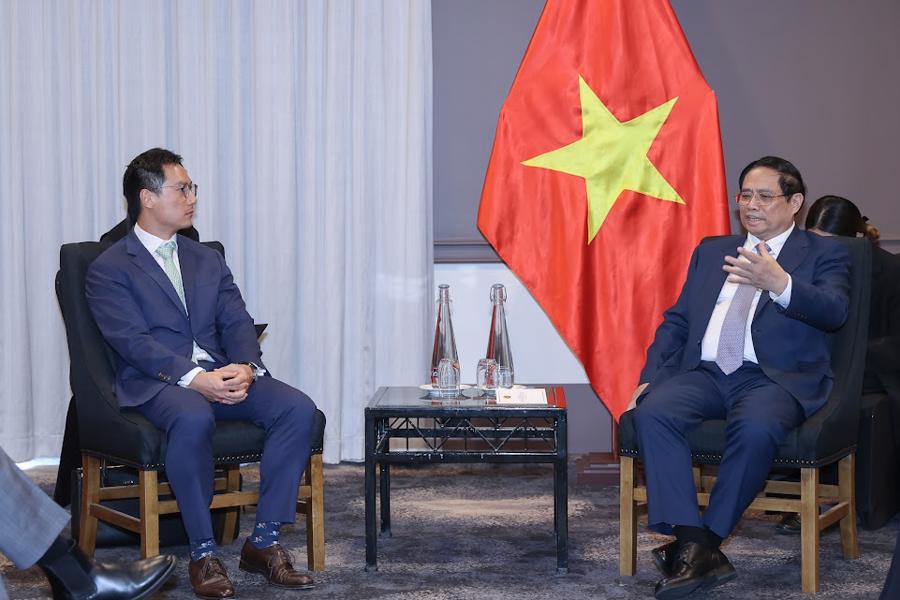
Established in 1969, Macquarie is a diversified multinational financial conglomerate headquartered and publicly-listed in Australia. Its core activities encompass financial investments and infrastructure development. It currently has a presence in 34 countries and territories with a workforce exceeding 21,000, and manages assets totaling over $573.5 billion. The conglomerate posted a net profit of $3.4 billion in 2023.
Corio Generation was established in 2012 and specializes in offshore wind power development. It manages one of the world’s largest offshore wind portfolios, with over 30 GW operational across the UK, Norway, and Sweden.
Since 2019, it has been actively involved in researching and advancing renewable energy projects in Vietnam. As a member of the Glasgow Financial Alliance for Net Zero (GFANZ), it collaborates with partners to mobilize resources for energy transition initiatives in Vietnam.
On March 5, during the Vietnam-Australia Business Forum in Australia, Corio, in the presence of Prime Minister Pham Minh Chinh, signed an MoU with Power Generation Corporation 3, a subsidiary of EVN, to jointly develop offshore wind power projects in Vietnam.
Under the National Power Development Plan in the 2021-2030 period with a vision to 2045 (Power Development Plan VIII, or PDP 8), investment in new thermal power generation capacity must exceed 30,420 MW, with 75 per cent, or 22,824 MW, being LNG-based power. Offshore wind power is expected to total around 6,000 MW by 2030, with the possibility of expansion if there are advancements in technology and if reasonable electricity prices and transmission costs prevail.





